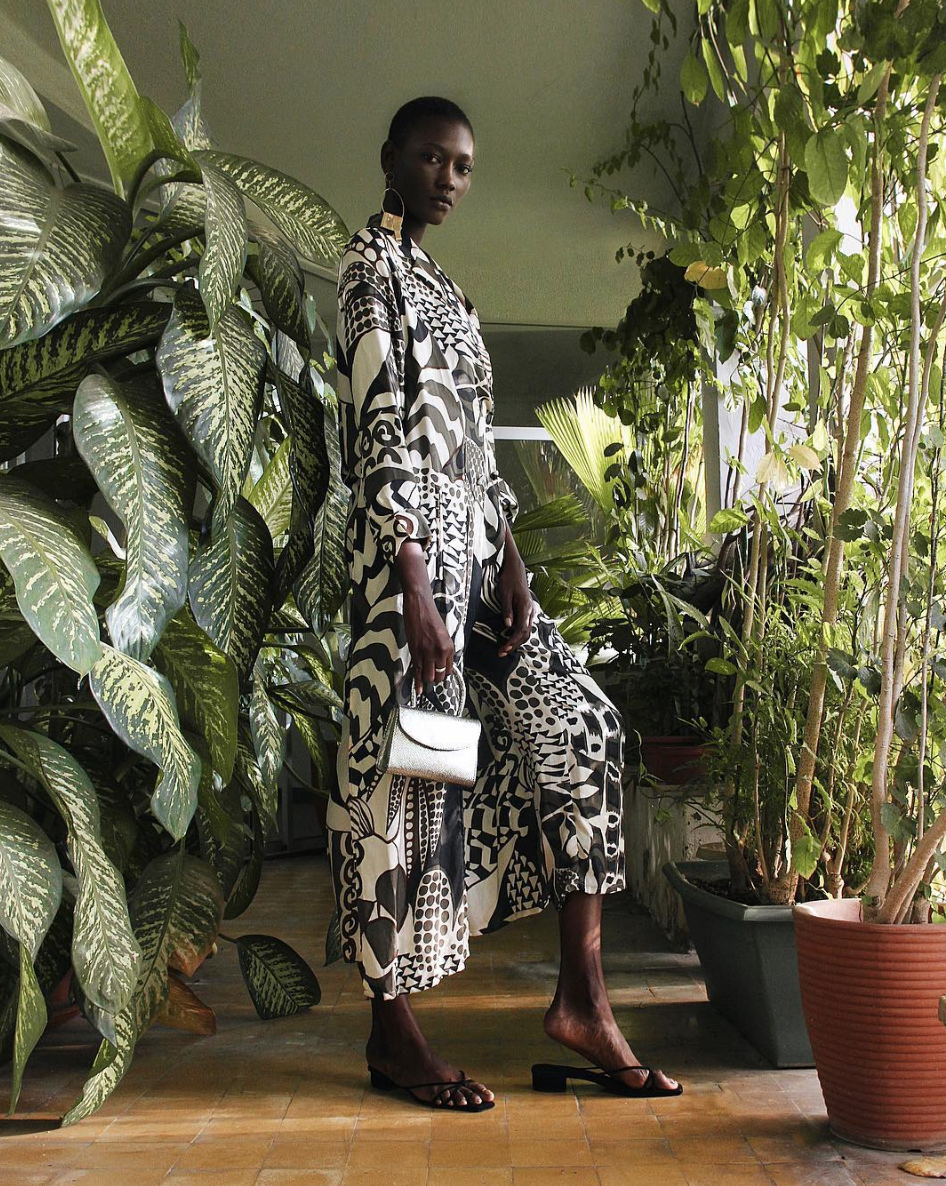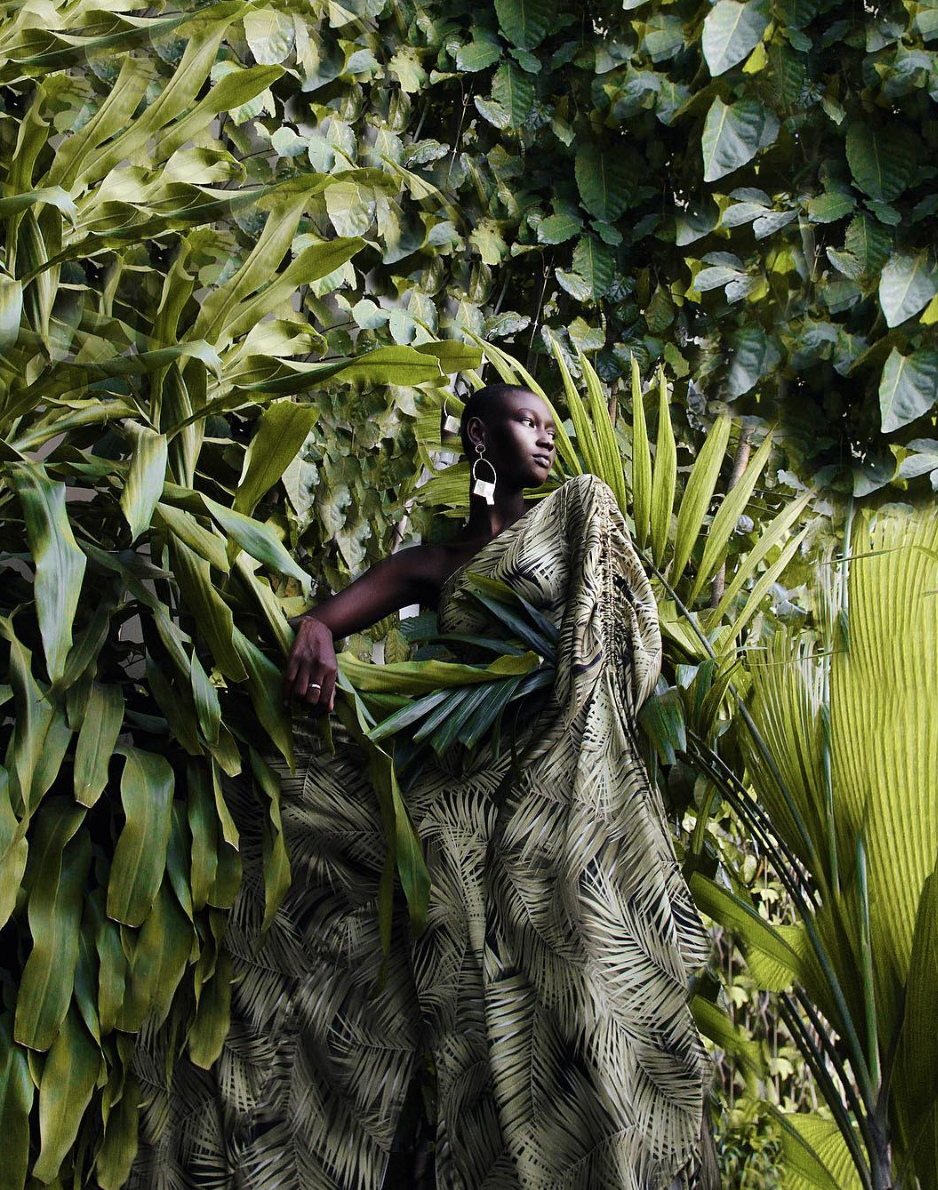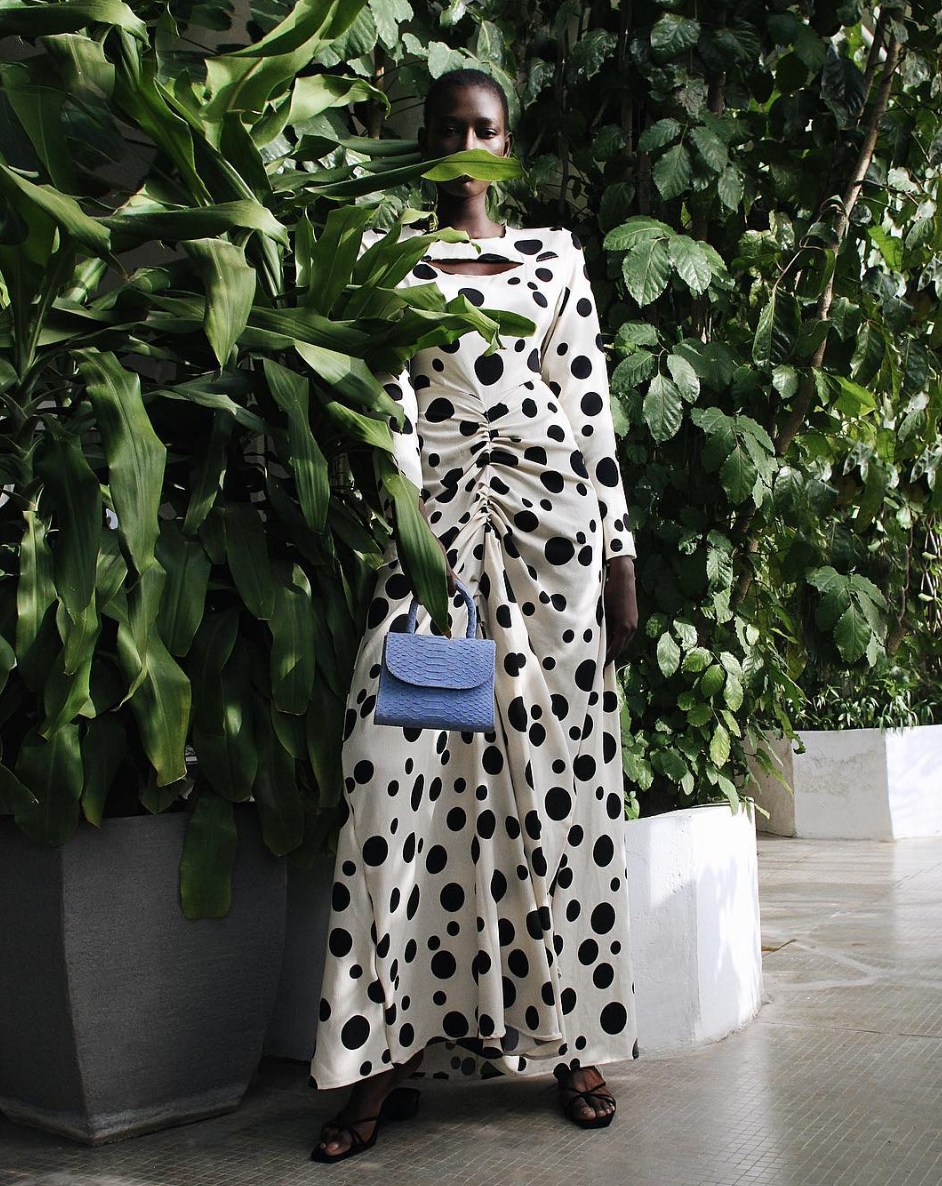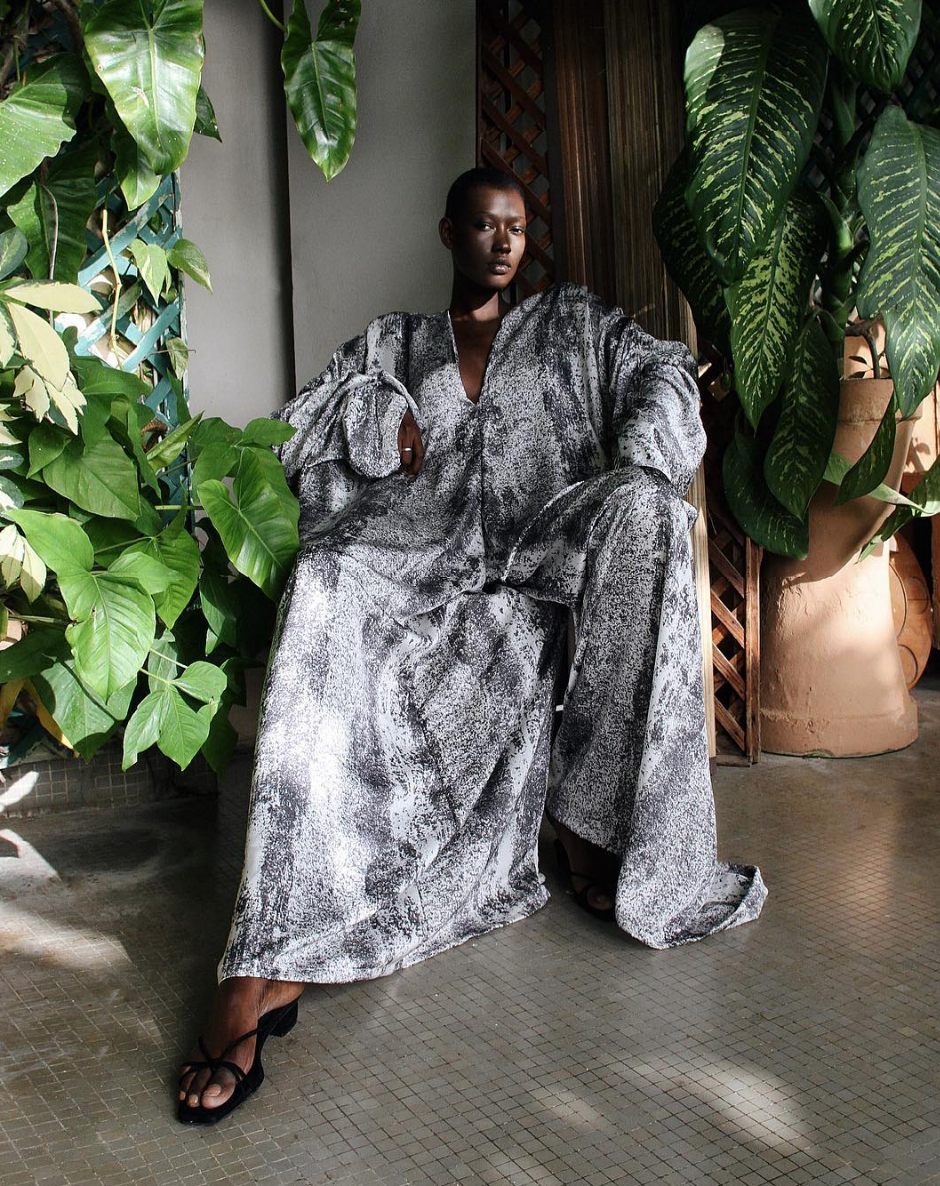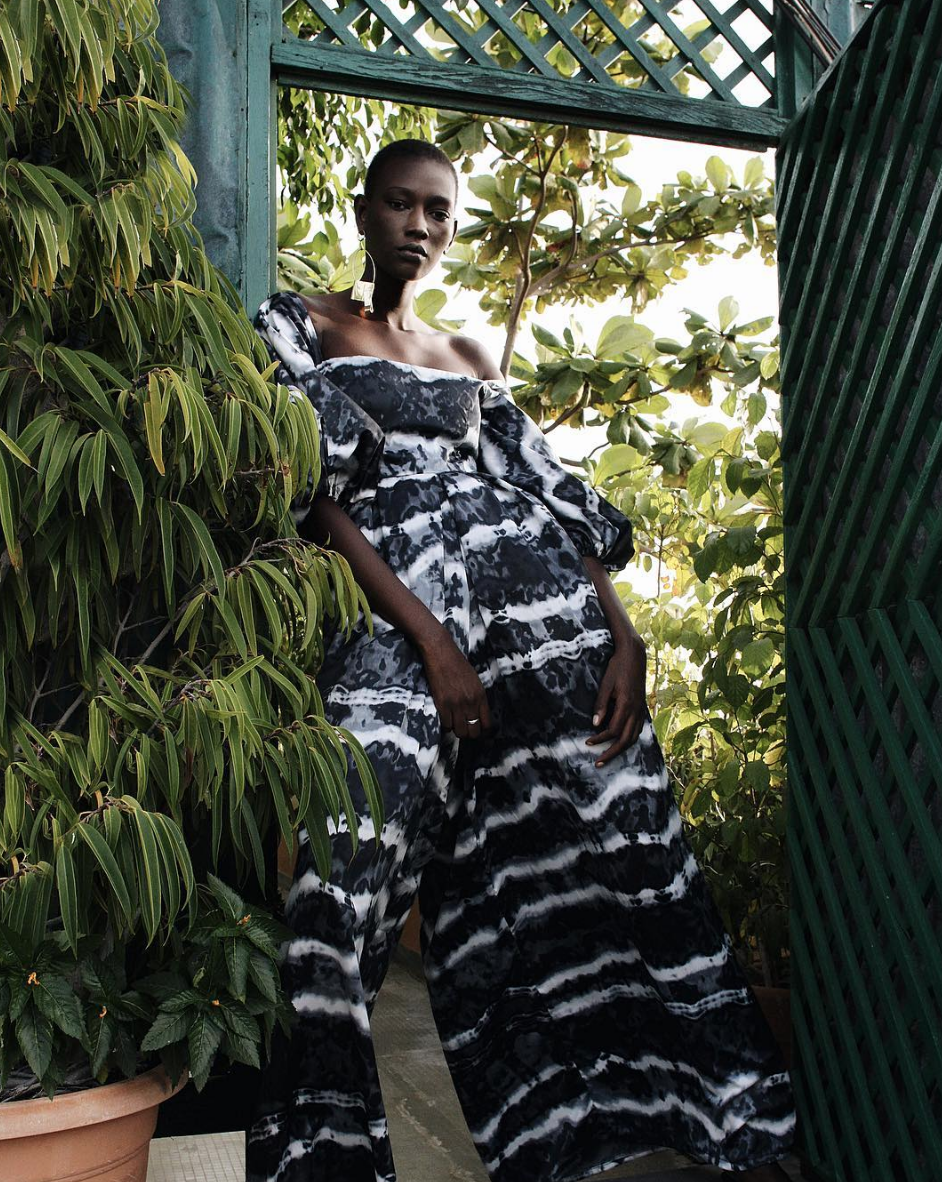Surviving and Thriving in Fashion: Meet Tongoro Studio
Tongoro Studio JËM Collection / Photo Courtesy @tongorostudio
DAKAR, Senegal — If there is one word to describe Tongoro Studio founder and creative director Sarah Diouf, it is relentless. A practiced creative, Diouf displays an unyielding energy to persist despite her present circumstances, always keeping her radiant mega-watt smile in tow.
Launching Tongoro two years ago, Diouf saw a need in the market for accessibly priced and stylish casual wear that was as versatile as the lifestyle she leads. As a result, her target audience is a significantly larger one than the luxury segment many young designers are increasingly drawn to. From a revenue perspective, little information is publicly available as Diouf’s brand is privately owned; but placing her brand in the affordable fashion realm (where pieces are priced from 60 to 200 euros), she is well-positioned to capture a strong consumer appetite for African-led and African-made designs at an approachable price point.
The business is predominantly direct-to-consumer, which allows Diouf to tightly control her narrative; she even art directs the global brand campaigns herself. Diouf understands the power of images to shape perception and it has critically served her well in garnering tremendous social support (38k followers and counting), including in her call-out of the embarrassing copycatting of her bag design by Saint Laurent in early 2017. She has been consistently focused on building a “tangible business and a platform for African fashion,” sentiments she shared in celebration of the brand’s two-year anniversary. Indeed, it would have been easy to fall into the trap of creating a “brand” with strong social recognition, but limited financial prospects - but Diouf is confronting the ambition to forge for the long-term.
“...launching a brand with no degree in design[,] but an insatiable will to learn and do something good and meaningful where I belong...”
She easily acknowledges that fashion was not an end goal for her and arguably it still isn’t. On her personal account, she shared, “funny thing is, I have never been crazy about working in fashion. It was never an end goal for me. My passion has always been image, I just found fashion to be one of the greatest accessor[ies] to create visual stories; at a time where the African narrative was not even a thing.” She continued, “launching a brand with no degree in design[,] but an insatiable will to learn and do something good and meaningful where I belong, and it takes me a lot to step back and look at the past 10 years without being emotional, because the road hasn’t been easy all the way. But I also realize that the most defining moments have always come right after the most uncomfortable and challenging times, which makes me now more than ever trust my journey, as we can only be more than yesterday, and less than tomorrow.”
On the back of a successful showing at Heineken Lagos Fashion Week at the end of October, Tongoro was one of the first African brands to employ a See Now, Buy Now strategy (defined by showing a seasonal collection on the runway during a fashion week and making those products immediately available for sale) by hosting an IRL pop-up with Lagosian retailer Temple Muse the next day. The collection is now available directly to global clients via their site. Sometimes young designers feel a pressure to instantly show on the runway, but using social media effectively as Tongoro has historically done as a preview, engagement, pre-order, and a proper communication tool can be far more productive and cost-efficient. Note that Tongoro only showed on the runway for the first time at Cape Town Fashion Week earlier this year, so there is something to be said for patiently waiting to undertake the expense and effort.
Another savvy approach Diouf and her team have utilized is opening pop-up storefronts in other markets. This past summer, the brand launched its first ever in Paris with a lean shop that hosted over 150 guests in one day. That’s serious foot traffic for a store with square footage the size of a hotel bathroom. Using a smaller space likely reduced overhead costs associated with the event. In addition, crafting a standalone experience (versus participating in a bigger trade fair where the number of vendors can potentially overwhelm) meant that again Tongoro could control the narrative and connect 1:1 with its target consumer.
Having garnered celebrity acknowledgement from none other than Beyoncé this year, Diouf has achieved another sought-after win after a series of triumphs. What a testament to the fact that global demand for African-designed and African-made products shows no signs of stopping anytime soon.
Tongoro’s new collection JËM is available now here.




